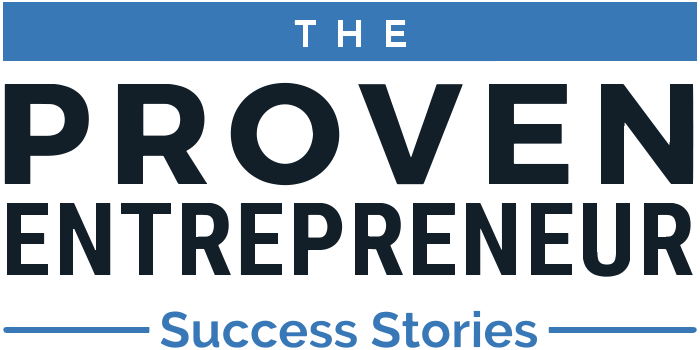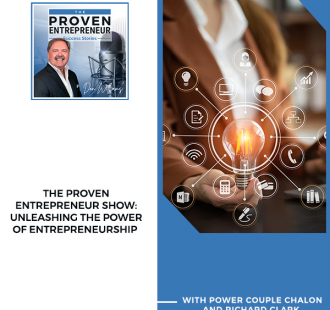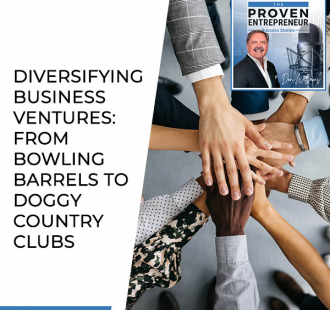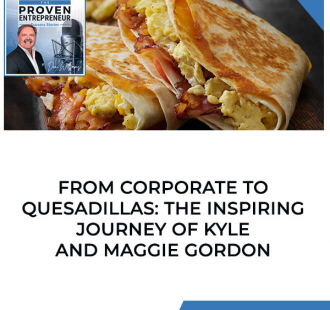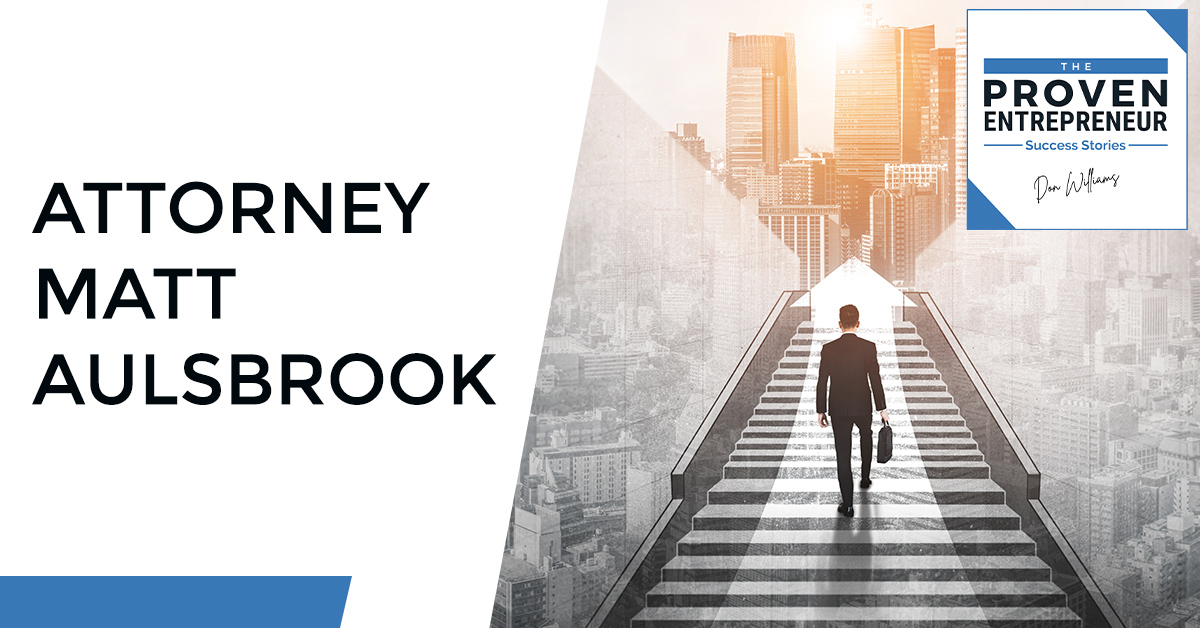
Attorney Matt Aulsbrook started his first insurance agency in 2009, catering to the non-standard auto insurance market. But after seeing that most clients are not always getting a fair share when making claims, he decided to shift gears and concentrate on personal injury. Joining Don Williams, he shares how he started his entrepreneurial journey at 15 years old and his experiences in law school. Matt also talks about struggling with drugs and alcohol, getting arrested multiple times, and overcoming these hurdles to establish a successful law practice.
For information on how to work with Don visit Work With Don Williams
You can also reach out to Don Williams at https://donwilliamsglobal.com
Please join Don and his businesses in support of St. Jude’s Children Research Hospital in its Mission to cure Childhood Cancers. You can donate to St. Jude at stjude.org/donate
—
Watch the episode here
Listen to the podcast here
Attorney Matt Aulsbrook
Beats Addiction. Graduates Law School & Owns A Successful Law Practice
My guest in this episode is my very good friend, Arlington, Texas-based attorney Matt Aulsbrook, with the Aulsbrook Law Firm. Welcome, Matt.
I’m glad to be here.
Man, thanks for coming. Let’s jump right in. Tell us about the Aulsbrook Law Firm and what areas of the law you specialize in.
We do personal injury, largely focused on motor vehicle accidents and commercial motor vehicle accidents. It’s a second career for me. I didn’t go to law school until I was 34. I got out at 37. I immediately opened my own shop. Funny story, I was waiting for bar results to come out, and I leased my office space, and I failed, and they only offer the bar exam twice a year. I was paying rent on my facility for 6 months, and I had a little motivation to study a little harder that next go-round since I had a 5-year lease I had signed.
I opened up in 2018, and it was just me and we just hired our 18th person. We got four attorneys, including me, in a few years. Our business is a little unique. It’s a contingency-based model, which means clients don’t pay us anything upfront to hire us, and we don’t get paid unless we get a settlement on a bodily injury claim. A quick turnaround on that would be six months. Oftentimes, it takes two years or more, especially in bigger cases. It’s a long runway. It takes a long time to get paid. Real money doesn’t start coming in for a couple of years, so we’re just now starting to see some decent revenue a few years in.
Tell me, what was your previous business? You went to law school at 34. What did you do in between?
My prior business started in 2009. I opened my first insurance agency in 2009. It’s a property and casualty insurance agency. It’s a franchise location, Fiesta Auto Insurance and Tax Services. It catered to the non-standard market for auto insurance. I cashed out my 401(k) in 2009, and I pushed it all in and started that insurance agency, and it was low. I had a duplex, and the other side was pretty much paying my mortgage, and I didn’t have any real debt. I just took a risk and started my first real business with payroll and worked up to five agencies from the initial start. In the meantime, I got an MBA there.
In 2014, I stepped away, became an absentee owner, and went to law school full-time. I graduated from law school and passed the bar in 2018. I sold all those to my key woman, and I lined up the financing on that. It was a great deal for both of us. The lender loved it. She was already running the business, and she put some skin in the game, and great exit for me, and a great opportunity for her to continue to move forward.
A couple of points. Sometimes, the best key man is a key woman. Two, in exits where entrepreneurs looking to sell the company to subordinates, bankers love someone who’s already running the business because it gives the business the best chance of being successful going forward.

I did a search for the lender and there’s a market for lenders that just lend to insurance agency acquisitions. It worked out.
Let’s go all the way back to young Matt. I know you’re from Sulfur Springs, Texas.
It’s about halfway in between Dallas and Texarkana on I-30.
In your household, were you raised in an entrepreneurial household with mom, dad, or grandparents?
I was not fortunate enough to meet my dad’s dad. My dad’s dad died when he was eight years old, but he bought that farm in 1941. We’ve still got that farm, and we’ve added a little bit to it, it’s about 300 acres now. My dad knew his dad for only eight years of his life, but his dad was an entrepreneur and, as I’m told, had businesses. My dad was always a wage worker. He was a truck driver and always drove trucks for companies and was a W-2 employee. He always wanted the benefits insurance for me and my siblings.
My mom, though, was self-employed. She did hair. I grew up in a beauty shop, watching ladies gossiping. I remember when I was a kid, she would get checks as payment for doing people’s hair and a combination of cash. I would remember filling out her deposit slip when I was a kid. I text her the other day, “Mom, I was thinking about you. I’m filling out a deposit slip here,” because in my current business we get checks from insurance companies. She’s like, “That’s interesting, but I’m sure your checks are a little bit bigger than the ones I used to get.”
As a childhood, what was your first paying job?
We’re in a rural area, and growing up, it was Hopkins County. When I was a kid, Hopkins County was the Dairy Capital of America. There were more dairies in Hopkins County per capita than in any other county in the United States. It’s a farming community, and lots of people baled hay in order to feed the dairy cattle. At 12 or 13 years old, I would be able to go out in the field and just pick up hay bales and run them to the barn and stack the hay. It was $0.35 a bale. It was some of the hardest work I’ve ever done and some of the biggest fights I’ve ever seen because people tend to get pissed when they’re hot and thirsty.
My grandfather was a wheat farmer. My first paying job was I drove a John Deere tractor behind the combines, the nasty tons of dust and dirt and wheat chaff in the air. I was 11 or maybe 12.
My dad had an old Ford tractor, and I would hook it up to a sixteen-foot equipment trailer. I and a friend would just go out there and pick up bales. That was during summer times.
You graduated high school in Sulfur Springs. You went to the Merchant Marines, traveled the world, backpacked across Europe, and went to a university. What was your next step?
In between there, since we’re talking about entrepreneurship on your platform, I got my hardship driver’s license at fifteen. I don’t even know if they still do that, but I was able to drive to and from work and school. I formed my own lawn service company at fifteen, so I could drive to work. That was a pretty cool gig. I had an ’85 S10 Chevy Blazer, and I had a little tilt small trailer that I could drive the riding lawn mower on. I recruited one of my friends, and he would do most of the weed eating and push mowing, and I would do the riding lawn mowing. I saw that as a way to be able to control my time and yet still make more money than my friends at a convenience store, at a Burger King, or whatever.
You have the entrepreneurial bug early?
I did, indeed. I’ve had a lot of offers from different schools. Academically, I excelled, but I just didn’t have my head on right, so I chose to go to A&M at Commerce, which is about 20 minutes from Sulfur Springs where I was from. I commuted and I worked as well. I put myself through undergrad, helped my parents, and sold cars at the time. It was a pretty cool gig. At eighteen years old, being able to drive new cars to school was fun.
You’re an undergrad. Your degree’s in Finance. After school, is that when you open?
No, I struggled with drugs and alcohol. Although I graduated high school as probably a sophomore with the credit hours I’d already established, it took me five years to get through undergrad. Between the time I was 17 and 24, I was arrested eight times, all as a result of drugs and alcohol. It’s difficult to open your own business when you can’t get your life in order.
After I got an undergrad, I tried being a financial advisor for a little bit and then ended up at a bank and moved to Tarrant County. I was with a big bank for a little while, but that’s when I made the decision. I was around 30 years old at that point, and I began to sober up and get my life in order, and that’s when I decided to strike out on my own. I’ve been sober for most of the last decade. I had six months of relapse years ago, but over ten years now, I’ve pretty much been sober. I help other folks in recovery now and certainly enjoy that, help other lawyers and other men.
Congratulations, and thank you for your service. It’s certainly needed. It’s much easier to get help from somebody who’s been there and done that than somebody who just read a book about it.
As you know, Don, it’s high-stress what we do as entrepreneurs. Oftentimes, people turn to drugs or alcohol and necessarily make the problem go away. It oftentimes enhances the problem, and then I’m also in a legal profession that has one of the highest substance abuse rates with physicians just because of the added stress that we deal with and because people don’t generally call a lawyer on a good day. It’s generally a bad day when you’re picking up a phone and making a call to a lawyer. We just don’t deal with the easy stuff.
Even on the good day stuff, it’s not easy. Most of it is not a good day. Most of it is not for people looking to prepare and prevent. It’s for people looking to fix it. How do I make the pain stop? It’s part of your profession. Thank you for sharing that. We did the insurance agency. Was that here, or was that in Sulfur Springs?
That was here. It’s one of the reasons I left. It’s tough to make real money in a small town. My graduating class in high school is 200 people. I started my first insurance agency in Fort Worth, and I grew them in Tarrant County and Dallas County.
What happened that you said, “I’m going to get out of the insurance business, go to law school, and be on the other side of the insurance business?”
Selling insurance and having to assist clients with their claims, when I was an insurance agent, I realized that my clients didn’t always get a fair shake against the insurance company. I didn’t think the insurance company was making a fair claim. I thought if I switched to this role as a personal injury attorney, I could do something about that. The second thing is that I realized that the insurance check’s always cash. Instead of getting them as an insurance agent producer, I’m getting them to sue the insurance company now, so you have to have one bounce.
Thinking back on your entrepreneurial path, is there a hard lesson, something that was painful as you were going through it and maybe in retrospect turned out to be a good thing? Maybe not, but a hard lesson that you would share with us because we know the life of an entrepreneur is not always easy.
When I started my first insurance agency, it was a franchise. They give you guidelines. “Here’s the amount of money you should have. We recommend this as far as an amount for operating capital after your expenditures for your buildout,” and all that. I fit within those parameters, but I ran out of money, and then most of your audience probably knows the reason most small businesses fail. They run out of money. I had to go to my dad, and I had to ask him for $25,000. It was a lot of damn money at the time. My dad was not a fluent individual, and I certainly was out of money.
When I had my first office with the first person that I had to make payroll, he saved me. He lent me the $25,000, and it kept me afloat. For that, I would have closed and would have never gone to opening up additional agencies and growing it to five agencies. Who knows where I would’ve been now? Your question was, what have I learned? Cash is king. You got to have the cash to operate.
Cash is king. Without it, you cannot operate. Click To Tweet
It is king. I’m so glad that your dad helped out. Family and friends are behind many successful entrepreneurs.
I’m happy to be able to pay him back as well when I got the ability to do that.
I had somebody tell me. They said the opposite. Cars are not supposed to touch. When they do, that’s called a car wreck, and it’s an accident. Businesses, by the same token, are not supposed to run out of money. Every activity in a business should probably fall under one of two umbrellas. The umbrella of, “Bring money in,” or the umbrella of, “Keep money in.”
If it doesn’t fall under 1 of those 2 umbrellas, maybe it’s a hobby, a charity, or something else, but in a business, it probably should fall under 1 of those 2 umbrellas. What about a warp-speed moment? Things are going pretty well, 1 event or 2 happen, or a strategy you implement that all of a sudden you just have hockey stick growth, and things take off.
I can’t think of one individual moment when I did one little tweak or something, and things took off, but my background is in service-related industry business types, insurance, and legal services. Building the two businesses was eerily similar because in the insurance world, you have to build a book of business, and it takes time for that residual income to build up for it to start flowing. It’s such a similar deal in the business that I’m running now. It’s not residual income, but the pipeline has to be there and built for the money to start rolling in.
There are not a lot of folks that can sustain 2 or 3 years without the money coming in. In those two businesses that I’ve been affiliated with, that’s been the case. That’s why in my current industry and as far as being a personal injury, that’s why a lot of people don’t strike out into it because it takes money to fund it. It takes money to put into these cases and to fund the team, and then you might not win. It’s a high risk but certainly high-rewarded if you can make it work.
That’s the slow warp-speed moment. Both businesses are brick by brick and that’s just the way it is. It’s just like, lay more bricks now and we’ll have enough for a platform at some point. What about a golden nugget, something you know from your experience that entrepreneurs would have an a-ha?
For building and scaling, for me, it boils down to the team. I don’t know if it’s revolutionary or anything. I think most of them know this, but you can’t grow without the right people on the bus and having them in the right seats. As we’re embarking on a new year here, it’s a time when a lot of us reflect on where we’ve been and where we’re going. We didn’t lose anybody in 2021 and we added a lot of people.
You cannot grow without the right people on the bus and placing them in the right seats. Click To Tweet
To keep the turnover down, to have the right people, and to not need to get rid of anybody, for me, it’s so key because turnover costs so much money, and we can’t always be right when we hire people. We’ve been pretty lucky in 2021. We hired the right people, didn’t have to get rid of anybody, and added people. You ask how that warp speed can happen and why I couldn’t give you an exact answer to that. I don’t think it happens if you don’t have the right people in place.
It’s all about the customer, your teammates, and your mate all the time. We’re all in the people business. Regardless of which industry we think we’re in, we’re all in the people business, so thank you. We’re going to put you in the time machine and take you all the way back to 20-year-old Matt. You get about 60 seconds to share one piece of advice with 20-year-old Matt that would’ve helped you along your path. What would that 1 or 2 thoughts that you’d share with 20-year-old Matt be?
That would be easy. I was in the depths of my alcoholism and drug addiction at that time. I’d just tell him to put the dope and the booze down, and I would be so much further along in my entrepreneurial journey now had I sobered up a decade earlier.
Thanks for sharing that. We’ve done about 100 of these episodes so far, and one thing I’ve found is that a proven entrepreneur’s success story always includes some failing stories. The interesting thing is that the height of success is almost equal to the depth of failure. Little failings, little successes. Big huge failings, big huge successes. The moral of that story is brick by brick. Keep going. Don’t stop. Thank you. How can we support you? We got 44,000 downloads so far. What would you ask from the tribe?
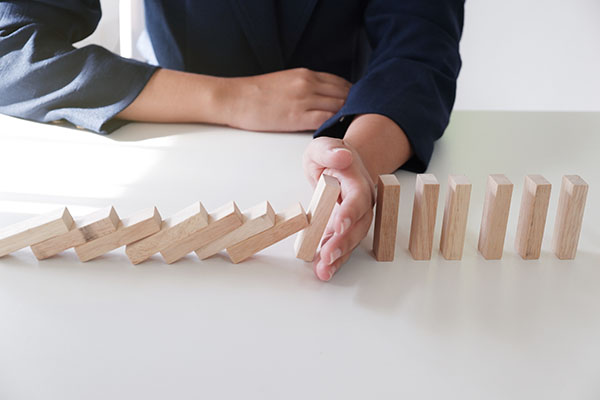
If you get run over by a commercial vehicle or 18-wheeler, give me a shout. That’s what we do. We help folks who’ve been injured or killed as a result of motor vehicle crashes. We’re sitting here in Tarrant County, and Star-Telegram came out with an article saying how crashes have increased here in our area and we had 100 fatalities in commercial vehicle crashes in 2021. We’ll take a commercial truck wreck anywhere in the United States. We can certainly make that happen, and that’s what we specialize in. If your family member gets run over by a truck, give us a holler.
Thank you. What’s the best way for someone to reach out to you, Matt?
My website is TheTexasLawDog.com. My last name’s Aulsbrook. I went with a domain name that somebody could spell because I’ve been spelling my last name my whole life, and nobody can spell it. Contact me at Matt@TheTexasLawDog.com. I’m happy to give you my cell phone number. It’s (903) 348-2154. I’m always happy to talk entrepreneurship if anyone wants to talk shop.
Matt, thank you so much for joining us. That’s our episode. See you next time. Thanks.
Important Links
For information on how to work with Don visit Work With Don Williams
You can also reach out to Don Williams at https://donwilliamsglobal.com
Please join Don and his businesses in support of St. Jude’s Children Research Hospital in its Mission to cure Childhood Cancers. You can donate to St. Jude at stjude.org/donate
